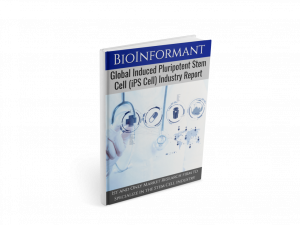Despite progress involving the use of induced pluripotent stem cells (iPSCs) within disease modeling and drug discovery applications, it will be a long path to achieve the broad-scale use of iPSC-derived cell types for use in human patients. Within a preclinical context, cell types differentiated from iPSCs are tested for their therapeutic response by using animal models. Then, clinical trials are conducted to assure that essential parameters, such as tumorigenicity, dose toxicity, and immunogenicity, are assessed before authorizing the product for use in human patients.
Using iPSCs as Cell Therapeutics
iPSC-derived cells have the potential to be used as therapies for treating cardiovascular, neurological and metabolic diseases and repairing damaged cartilage, spinal, motor neuron and eye tissues resulting from genetic defects or injuries. In general, the targets for iPSC-derived therapies include any diseases or disorders for which there are no other viable treatments and where there is a need to repair or replace dysfunctional tissue.
As of today, only a handful of companies are involved in developing iPSC-based cell therapeutics.
Semma Therapeutics, which was acquired by Vertex Pharmaceuticals for $950 million in late 2019, has been developing a treatment for Type 1 diabetes consisting of cells derived from iPSCs that behave like pancreatic cells.
BlueRock Therapeutics, which was acquired by Bayer, has been targeting Parkinson’s disease and heart failure.
In collaboration with Fujifilm, Cynata Therapeutics Ltd. has been developing an iPSC-derived treatment for graft-versus-host disease (GvHD), a serious disorder that occurs after bone marrow transplants, and and critical limb ischemia (CLI).
Fate Therapeutics has been using iPSC-derived NK and T cells for the treatment of cancer and immune disorders. In 2019, the company began in 2019 its first ever U.S. clinical trial of an iPSC-derived cell therapy product.
TreeFrog Therapeutics has created a stem cell encapsulation technology to enable the mass production of human pluripotent stem cell (hPSC) derived cell therapies in industrial bioreactors, with best-in-class cell quality and low production costs.
Stemson Therapeutics has been developing a therapy for hair loss involving generation of de novo hair follicles.
The Japanese company Healios K.K. is preparing, in collaboration with Sumitomo Dainippon Pharma, for a clinical trial using allogeneic iPSC-derived retinal cells to treat age-related macular degeneration (AMD).
Within Japan, there are numerous physician-led studies underway investigating the use of iPSC-derived cellular products within human patients. These clinical trials are for diseases such as AMD, ischemic cardiomyopathy, Parkinson’s disease, solid tumors, spinal cord injury (SCI) and platelet production.
Developing iPSCs as Cell Therapeutics
Details on these various iPSC trial are provided below.
Clinical Trials for AMD
Significant progress has been made for retinal degeneration diseases, particularly for age-related macular degeneration (AMD). In 2009, preclinical data showed for the first time the recovery of visual function in patients injected with retinal pigment epithelium (RPE) differentiated from iPSCs in a rat model’s retina. A major breakthrough was made when the group led by Masayo Takahashi at the Riken Centre for Developmental Biology in Japan produced iPSC-RPE cell sheets in 2014.
Autologous iPSC-RPE for AMD
The above-mentioned successes led to the initiation of the first iPSCs clinical trial in 2014 itself. Scientists at the RIKEN Centre in Japan transplanted an autologous iPSC-RPE cell sheet just below the affected retina, without immunosuppression, in a 77-year-old woman with AMD. One year after the transplantation, the progression of the degeneration simply halted, an area with photoreceptors recovery was observed, and the patient’s vision remained stable. There were no symptoms of immune rejection or tumor development.
Allogeneic iPSC-RPE for AMD
In March 2017, Japanese scientists announced that a 60-year-old man was the first patient to receive iPSC-RPE cells derived from another person (allogeneic source). Moreover, a clinical-grade iPSC bank for collecting and storing healthy HLA homozygous donors is now being established at the Centre for iPS Cell Research and Application (CiRA) in Kyoto (Japan). Ultimately, in July 2019, scientists at Osaka University started a clinical trial for limbal stem cell deficiency, a condition in which corneal stem cells are lost. The scientists grafted a sheet of iPS-derived corneal cells into the cornea of a patient, and within one month, her vision seemed to have improved.
iPSC-Derived Dopaminergic Neurons for Parkinson’s Disease
Another condition that has attracted attention is Parkinson’s disease, a neurological disorder. In 2008, it was confirmed that symptoms and dopaminergic function of rat models improved when administered with iPSC-derived dopaminergic neurons. In Japan, dopaminergic progenitor cells differentiated from iPSCs were grafted into an animal model of Parkinson’s disease and the affected animal showed an improvement of symptoms.
These dopamine precursor cells were created from allogeneic iPSCs produced by Jun Takahashi’s research group at Kyoto University. In October 2018, the clinical trial using iPSCs started when these precursors were grafted into the brain of a human patient in his 50s, with a total of seven patients recruited for the study.
iPSC-Derived NK Cells for Solid Cancers
In 2016, the injection of iPSC-derived natural killer (NK) cells into an animal model provided proof of their potential for effective immunotherapy treatment for ovarian cancer. In February 2019, allogeneic iPSC-derived NK cells produced by scientists from the University of Minnesota, in collaboration with Fate Therapeutics, were granted approval by FDA for a clinical trial. The study aims to treat nearly 64 patients with different cancer types.
iPSC-derived Cells for GvHD, CLI and COVID-19
Clinical trials have been initiated using iPSC-derived cells for graft-versus-host disease (GVHD). The Australian company Cynata Therapeutics has been granted the approval to proceed with a clinical trial of its allogeneic iPSC-derived mesenchymal stem cell (MSC) product, known as CYP-001.
The company has established the safety of its Cymerus™ iPSC- derived MSCs and demonstrated preclinical efficacy in a humanized animal model. Cynata has successful completed a Phase I trial in 16 steroid-resistant GVHD patients with positive results, positioning the company to advance into phase II trials. Cynata is also exploring the use of its Cymerus™ iPSC- derived MSCs in critical limb ischemia (CLI) and COVID-19.
iPSC-derived Cells for Spinal Cord Injury
Several preclinical studies in spinal cord injuries using iPSC-derived neural progenitor cells in animal models have provided evidence for remyelination and locomotor function recovery. In February 2018, the Japanese government gave an approval to Professor Hideyuki Okano for a clinical trial that will involve the treatment of patients with spinal cord injuries at Keio University.
iPSC-derived Cardiomyocytes for Ischemic Cardiomyopathy
In 2017, iPSC-derived cardiomyocytes were grafted on to a porcine model of ischemic cardiomyopathy by Kawamura, et al., using a cell-sheet technique. Cardiac function was significantly improved, and neovasculogenesis was observed.
Scientists from Osaka University were also granted approval for a clinical trial to transplant allogeneic sheets of tissue derived from iPSCs onto the diseased hearts of three human patients. Similarly, a group of scientists from Kyoto University were granted approval to begin a transfusion trial using platelets derived from iPSCs into an individual with aplastic anemia.





















Tell Us What You Think!